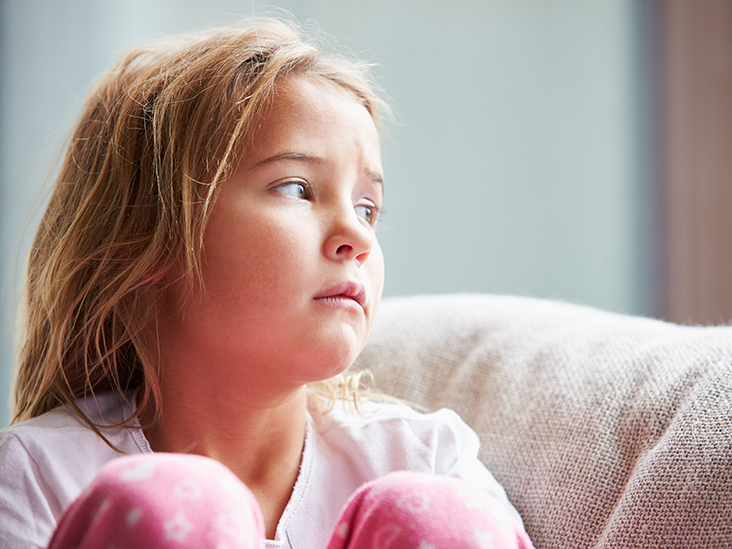Signs of OCD in ildildren | Could My Child Have OCD?
 Have you recently noticed your child engaging in ritualistic behaviors or having a preoccupation with specific thoughts? Do you notice your child’s routines becoming time-consuming or differing from that of “normal” childhood behavior? It can be hard for a parent when they realize that their child is exhibiting unusual behavior or expressing uncommon thoughts and worries. It can be especially hard for a child who is living with these symptoms.
Have you recently noticed your child engaging in ritualistic behaviors or having a preoccupation with specific thoughts? Do you notice your child’s routines becoming time-consuming or differing from that of “normal” childhood behavior? It can be hard for a parent when they realize that their child is exhibiting unusual behavior or expressing uncommon thoughts and worries. It can be especially hard for a child who is living with these symptoms.
It’s common for children who have undiagnosed OCD to have reservations about sharing their symptoms for fear of embarrassment, or because they don’t fully understand what they’re experiencing. OCD symptoms can sometimes look similar to other anxiety disorders, ADHD, and autism spectrum disorders and prior to having a diagnosis can make it hard to know what kind of treatment your child needs. A good starting point is to better understand what OCD is and what it isn’t.
If you’ve ever found yourself sitting down at the computer searching things like “Why is my child frequently worrying about germs?” or “Why does my child excessively check things and frequently confess/apologize for their actions?” then read over a list of common obsessions and compulsions below.
Common Obsessions:
– Extreme fear that bad things may happen or that they will do something wrong
– Worries about germs, sickness/disease, or dying
– Feeling things need to be “just right”
– Unwanted thoughts/images of doing harm to others
– Unwanted thoughts/images of a sexual nature
Common Compulsions:
– Excessive washing/cleaning
– Doing things until they feel “just right” (touching, tapping, redoing)
– Arranging or ordering things
– Excessive checking (ex: “Is the door locked?”)
– Excessive praying or reviewing things in your mind
– Finding some works or numbers to be lucky/unlucky
– Excessive reassurance seeking (“Am I sick?” / “Are things going to be ok?”
– Asking parents to redo actions
Its important to understand that obsessions can occur prior to seeing them physically manifest into compulsive behaviors. An example of this might be a child obsessing about germs and worries that they will become sick or die. A compulsion that they might use to combat these intrusive thoughts and fears could be excessive hand washing, avoiding “dirty” places or staying away from people they deem to be “dirty.” Another example might be a child that writes and rewrites over their letters when doing homework until it feels “just right” or until a “bad” thought that they had gets replaced with a “good” thought.
If any of this sounds familiar, consider having a conversation with your child. Open the door for a discussion about their worries and behaviors to take place so that they can feel comfortable sharing their symptoms. According to the International OCD Foundation (IOCDF), some suggestions for parents on how to start conversations about their child’s OCD include: “You seem preoccupied/worried all the time, can you tell me what’s on your mind?” “All people have worries; it’s okay to tell us about yours.” “We notice you repeating the same action, do you know you are? Are you afraid something will happen? Can you try to do it only once? What happens then? Does it just not feel right?”
By understanding their obsessions and compulsions, and how OCD targets them in everyday life, the sooner they can learn practical tools that they can use to combat their OCD for the rest of their lives. When seeking therapy for your child it is crucial to work with a therapist that truly understands OCD, and has specific training to treat it. Through extensive research, a type of Cognitive Behavioral Therapy (CBT) known as Exposure and Response Prevention (ERP) has been found to be the most effective treatment for children, adolescents and adults with OCD. Less than 1% of mental health practitioners (therapists, psychologists, psychiatrists, and physicians) in the country have received specific training in ERP, which often leads families to ineffective treatment options. It is critical that children and adolescents with OCD receive treatment by a therapist who has received advanced training and specializes not only in the treatment of OCD, but also specializes in the treatment of children and adolescents. It is important to thoroughly interview a prospective therapist before scheduling an appointment for your child.
Speak With An Orlando Child OCD Therapist
407-378-3000
More About Childhood OCD
Learn More: International OCD Foundation





